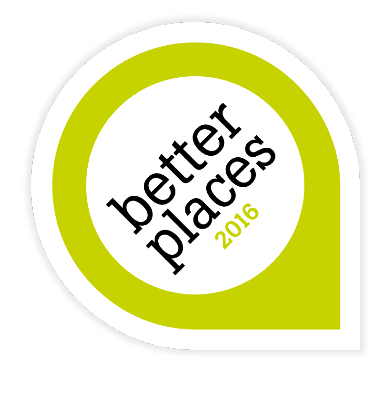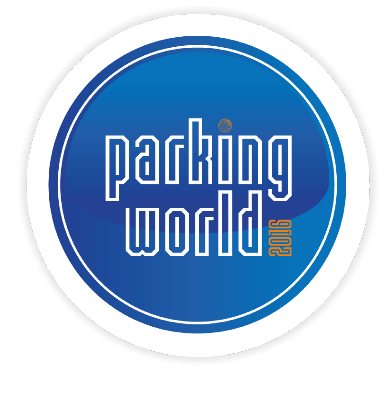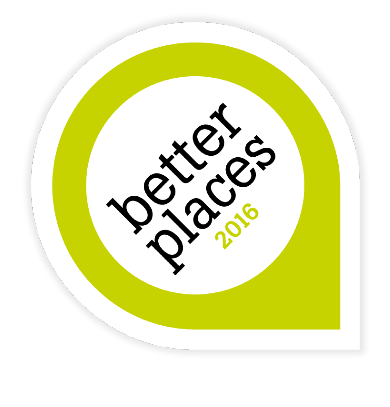09.30
|
Morning Plenary: New transport strategies for better places  
The built environment and infrastructure in towns and cities influences the way we move, interact, transact, behave and feel. Spatial layout, urban design and mobility opportunities and choices are closely linked to economic and social success, and to health and wellbeing. The efficient management of the kerbside, parking and roadspace is also essential to the health, wealth and vitality of urban centres.
There is now a strong political will to address social issues such as low levels of activity, poor air quality, congestion and private car dependency. Rapidly developing mobility business models and technologies present clear options for more cost-effective, convenient and less polluting ways of travelling for work and leisure.
Welcome and introduction from Plenary Chair
Jonathan Bray, Director, Urban Transport Group
Working together: urban development and mobility planning
How Vienna's Urban Mobility Concept and Urban Development Plan (STEP 2025) is making the city a better place. Read more on TransportXtra.
Andreas Trisko, Head of the Department for Urban Development and Urban Planning, Vienna
How sharing transport and parking management delivers better places
A growing number of local authorities are working together to develop transport and parking strategies. The sharing of expertise and resources provides the ability to improve the health, wealth and vitality of urban centres. And, done properly, a shared service approach can still respect the specific policy objectives of partner authorities and protect the distinct characters of their localities.
Mahmood Siddiqi, Director of Transportation and Highways, Royal Borough of Kensington & Chelsea and London Borough of Hammersmith & Fulham
Everything is connected: The Internet of Things in towns and cities
The Internet of Things (IoT) is seen as a key enabler of a connected planet. However, connectivity is not just a technological concept; we are all connected in many other ways, through the air that we breathe and in the way that we consume and generate energy. A key opportunity for IoT is to help us manage this connectivity. With this background in mind, we shall describe a number of projects in which networks of vehicles are used to manage consumption. Particular attention will be paid to energy consumption, air quality, parking and new services that can be enabled via vehicles.
Robert Shorten, Professor of Control Engineering and Decision Science at University College Dublin
Q&A Session with speakers
|
|
Civilised Streets
Enabling active modes, involving communities and introducing greening policies, along with controlling polluting vehicles, addressing anti-social parking and loading are all needed in the complex challenge of creating healthier and more pleasant streets.
Session chair: Robert Huxford, Director, Urban Design Group
The smarter street scene
Real-time data from parking sensors, ANPR, GPS trackers, hand-held devices and other sources to better manage traffic, the kersbide and environmental issues.
Graham Williams, Commercial Director, NSL
On-street car parking vs cycle parking: the business case
Over the past five years there has been a steady, but growing, replacement of parked cars on streets with secure cycle parking units. Is this is good for residents, and are local authorities losing out on revenue?
Habib Khan, Director, H2Asgard
Walking strategies: change the street, change the world
Achieving benefits from walking: international case studies, strategies and next steps.
Susan Claris, Associate Director, Transport Consulting, Arup
Space for people: a vision for streets, roads and parking
A process for making 'human' streets a reality.
Phillippa Banister, Senior Project Manager, Sustrans
Q&A
|
Living with and without cars
The car is a key mode of travel, but a problematic one. This session looks at how cleaner, shared and autonomous cars, as well as sustainable alternatives, could create a positive urban transport mix.
Session chair: Chas Ball, Director at C4ST: Centre for Sustainable Transport
Living with automated cars: A journey to Supurbia
What will town centres and residential streets look like in a future of autonomous vehicles?
Rory Bergin, Partner, Sustainable Futures, HTA Design
Autonomous vehicles (AVs) and positive impacts on urban spaces
How AVs could improve our streets, urban centres, suburbs and highways.
Nigel Bidwell, Partner, Farrells & Toby Thornton, Associate WSP | Parsons Brinckerhoff
Car reduction strategies: Tubingen, Germany, and re-visiting Freiburg
The role of transit-oriented mixed communities at neighbourhood and district scales: case studies.
Iqbal Hamiduddin, The Bartlett School of Planning, Faculty of the Built Environment, UCL
Do drivers really want driverless cars?
Free parking… bigger bays… an end to penalty notices. Surveys show drivers want all these, but do they really want cars that drive and park themselves?
Neil Greig, director of policy and research, IAM Roadsmart
|
Smart place management
In the transition to smart cities that support better urban mobility, research has revealed local authority 'need to know' areas, including understanding, buy-in, budgets, leadership and capability. This session explores progressing smarter initiatives, and at the affordable tools and processes available, both technological and psychological.
Session chair: Guy Douglas, Parnerships Director, Clockwork City
Smart city buy-in: potential to improve citizens’ quality of life
Improving the understanding of smart city planning: what works?
Alan Howard, Sector Head for Thought Leadership, Future Cities, The Institution of Engineering and Technology (IET)
Smart city enlightenment for local authorities and communities
Recommendations for councils to build and optimise smart city plans.
John Fox, Managing Director, CitiHorizons/Lucy Zodion
Affordable technology platforms for parking, retail and active mobility
Solutions to make high density city living more sustainable.
Martin de Heaver, Chief Executive, GEOmii
Intelligent Mobility and place-led development
How will 'smart city' vehicles, people and infrastructure interact?
Emily Walsh, Associate Director, SYSTRA JMP
|
The economics of parking
The role of parking in creating better, more vibrant town and city centres.
Session chair: Manny Rasores, principal, MR Parking Consultancy
Push-Pull: The real role of parking in urban economies
How to ensure parking supports local communities and business.
Giuliano Mingardo, Lecturer, Transport Economics, Erasmus University Rotterdam
Digital parking marketplaces
The emergence of apps, websites and connected car systems that locate and pay for parking. Read more on TransportXtra.
Max Crane-Robinson, Commercial Director, NCP
What happens when parking is moved out of the High Street?
When town centres reduce and regulate parking do people still come to town on foot, public transport and bike, or do they go elsewhere?
Andrew Potter, Technical Director, WSP Parsons Brinckerhoff
Real-time data paints a parking picture
Bay sensors monitor the use of parking bays, opening up the way for the smarter allocation of spaces, focussed enforcement, pre-booking and dynamic pricing.
Dan Hubert, Chief Executive, AppyParking
|
|
Evolving mobility management
How the advent of more walking and cycling, Mobility as a Service, and shared, connected and autonomous cars could impact on town and city centres and on public transport services.
Session chair: Oliver Daley, Traffic Engineer, Urban Movement
Shared autonomous cars will transform cities
How on-demand shared mobility systems will impact transport operations, parking, land use and accessibility.
Devrim Kara, Director, PTV UK
Mobility as a Service and how it can help to make better places
A new world of mobility, built for people and place from the bottom-up.
Read more on TransportXtra.
James Gleave, Foresight Analyst, Transport Systems Catapult
Sharing is the new owning
How will customers benefit from Mobility as a Service, and how can sharing be prioritised?
Giles K Bailey, Director of International Affairs, Travel Spirit Foundation, and MD, Stratageeb Ltd, UK
EVIDENCE: proven economic benefits of sustainable transport measures
Effective integration of sustainable transport measures into urban mobility plans.
Dima Fadda, Traffic Engineer, Arcadis
|
Improving air quality
Air quality is now at the top of the political agenda, with towns and cities around the UK exploring ways to mitigate the impact of polluting vehicles and encourage cleaner modes of transport.
Session chair: Sue Vincent, Programme Manager, Urban Design London
Beyond nudge and improving transport infrastructure: the real task of tackling poor air quality
Dr Jo Barnes, Senior Research Fellow, Air Quality Management Resource, University of the West of England
How Nottingham and Derby are becoming leading low emission cities
Connected business, investment and strategic planning across authority borders.
Mark Daly, Senior Transport Planner, Transport Strategy, Nottingham City Council
Carbon metered parking
Parking tariffs and permit schemes can be used to discourage drivers from using and owning higher emission vehicles.
Laura Gardner, Programme Manager, Camden Council & Luc Warner, UK Marketing Director, Parkmobile Group
Green design for urban dwellers: green infrastructure can transform concrete jungles
Creating balanced environments through clever and considered green design solutions.
Katie Cleary, Director, Meristem Designs
|
The business of sharing
Sharing is the new transport business model, but sharing can do much more for our towns and cities than give us Uber or bike hire schemes. Sharing enables people to come together, and work toegther, for mutual benefit.
Session chair: Ben Hamilton-Baillie, Hamilton-Baillie Associates Ltd
How sharing makes better places
With each car club vehicle replacing over 10 private cars, we look at the implications of the anticipated expansion of car clubs on rethinking on how we could use highway space.
Alistair Kirkbride, Executive Director, Carplus Bikeplus
Design for people – evidence from sharing, psychology, urban design and wellbeing
Mobility must support social relationships. Sharing principles can help.
Marten Sims, European Director, Happy City
Integrated Urban Models as a Shared Planning/Design Tool
Using new shared data, tools and processes to enable collaborative mobility planning.
Dr Eime Tobari, Associate Director, Space Syntax
Crowdfunding public transport
Using new technology to fund public transport upgrades: how it can deliver.
Keith Prince, Greater London Assembly (Cons)
|
Parking as a public service
Parking is often seen as a problem for towns and cities. But parking is also an essential service, a way of boosting local economies and even enabling a transformation in how we travel in urban areas.
Session chair: Chris Wade, Director, People Places Partnership
Parking, the essential public service
How can local authorities ensure their town centre car parks remain attractive gateways to their high streets?
Paul Necus, former Head of Specialist Services, & Sean Cleary, Commercial Services Manager, Cambridge City Council
Workplace parking levies: Financing change
There has been a resurgence of interest in the workplace parking levy (WPL) approach as a way to finance better public transport and urban realm schemes without driving local businesses away. Read more on TransportXtra.
Nigel Hallam, Senior Officer, Workplace Parking Levy (WPL)
The Workplace Parking panel:
• Jason Gooding, Head of Parking, Fleet and Transport Services Nottingham City Council
• Tom Henderson, Partner, Bircham Dyson Bell LLP
How to create knowledgeable motorists: the digital recipe
From annual reports to interactive websites, there are many ways in which local authorities can ensure motorists understand the reasons for parking and traffic enforcement. With technology we can now anticipate a motorist’s needs and deliver helpful information with precision. Understanding digital behaviour is the key to reaching motorists on their own terms and getting the message across.
Jason Barbour, Product Director, Barbour Logic, & Ben Stephens, Head of Parking Service, Bromley & Bexley Parking Service
Better Blue Badge provision
The Blue Badge parking scheme enables people with disabilities to access town and city centres. To ensure the scheme's integrity it needs to be properly enforced.
Paul Slowey, Director, Blue Badge Fraud Investigations (BBFI)
|
|












